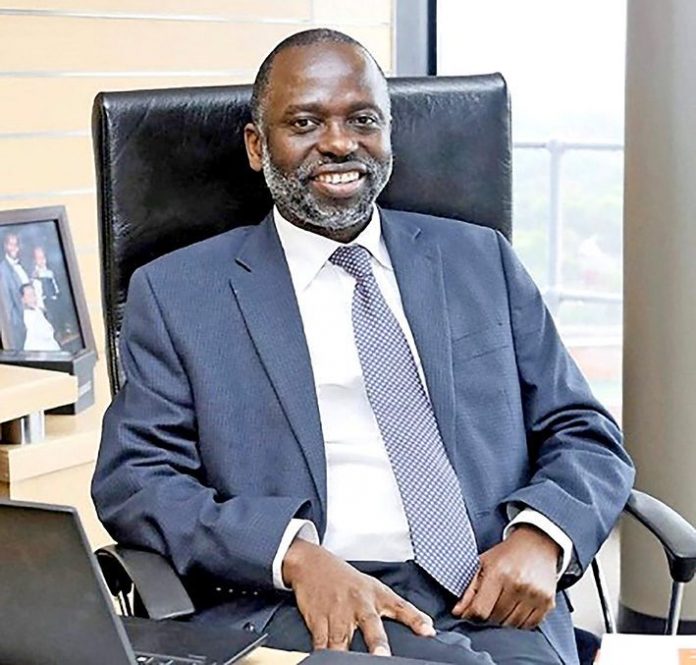He’s wearing blue skinny jeans, a matching t-shirt, trendy sneakers – and curiously – a formal pin-striped, black jacket. When I sit down for the interview, I notice a Panama hat on the table.
He is disarmingly cheerfully and his laugh is infectious. A line from an episode of the popular US television series NCIS comes to mind: “He is a paradox wrapped in an oxymoron smothered in contradictions in terms.”
He is jovial and lights up the room with laughter and interacts with ease with staff at the Country Club Johannesburg in Auckland Park. Yet, his passion quietens the chatter around tables – or is it his commanding voice when he speaks about education that drowns the conversations at other tables ? It is hard to say.
He is firmly grounded in his rural upbringing in Venda, and yet cosmopolitan, thanks to years of extensive travel since he was 17.
He chuckles and shows me a picture on his phone. He was 10 years old. “Looking at this boy, do you think today he would be the under-general-secretary of the UN? That is why it is important to respect everyone, you never know what they will become.”
He talks passionately about the role of technology in improving livelihoods and the lessons he learnt about leadership from herding cattle.
“We have reduced university leadership to administration, and there is a distinct difference because a leader is someone who leads people.
“As a person who grew up looking after cattle, there are two ways in which you can guide cattle. One is to chase them from the back, which is the most popular and easiest way … You are behind them, you are even carrying a stick to guide them and correct them to go as you wish.
“The second way, which is more difficult, is to be in front and the cows follow you. That’s leadership. You cannot be a leader if you don’t have anybody following you.”
Marwala, whose father was a maths teacher and his mother a housewife, was born in Duthuni in Venda, Limpopo. “I miss him. He was a great man,” he says about his father, who passed away in February. He says his mother, on hearing about his appointment, said: “Go and positively change the world.”
The father of three is married to medical practitioner Dr Jabulile Manana. His eldest son is a student at UJ and the family will move with the youngest children to the land of sushi.
“My grandmother was very instrumental in my education. She used to wake me up before the cock crowed to study. She was also superstitious, so she would put blankets on top of the curtains. She didn’t want anyone to know I was studying,” he says, roaring with laughter.
Speaking of sushi, Marwala recalls how as an 18-year-old studying for a BSc in mechanical engineering in Cleveland, Ohio in the US, he developed a strong friendship with two Japanese students – Yoichiro Endo and Takashi Matsumoto – who introduced him to sushi.
He became best friends with Endo, while Matsumoto took full advantage of their friendship by sometimes sleeping outside his dorm door so that he could be the first to ask for assistance with his subjects.
“I was very popular at varsity as a study partner,” he says.
“I spent a lot of time with Nigerian students who were doing their PhDs in engineering …” One of those students was Dr Yinka Adedeji, who became his mentor. “We graduated at the same time. What a mentor. Mentors are very powerful people,” he says.
For more education news from Sunday World, click here.
Follow @SundayWorldZA on Twitter @sundayworldza on Instagram, or like our Facebook Page, Sunday World, by clicking here for the latest breaking news in South Africa. To Subscribe to Sunday World, click here.



